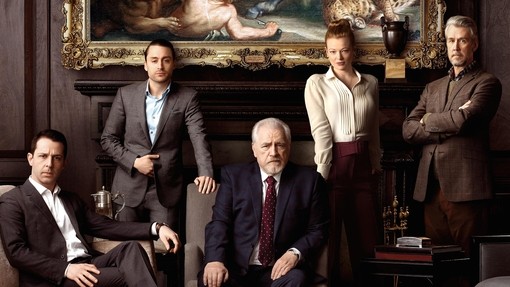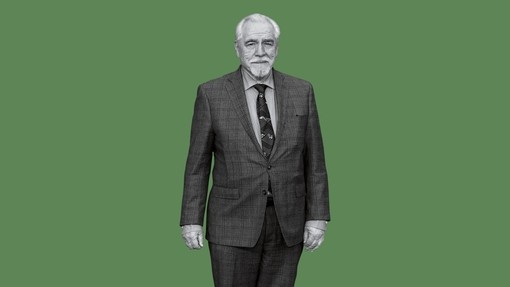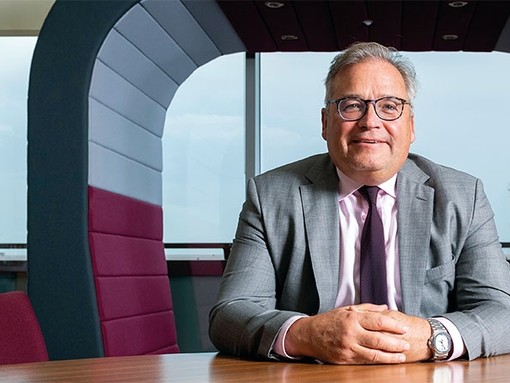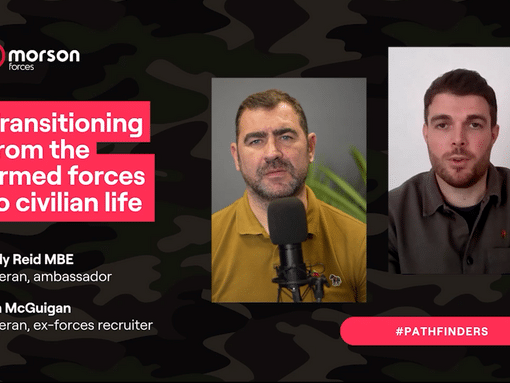
What TV’s Succession taught us about succession planning
Warning - MAJOR spoilers for the show!
The hit HBO show Succession, which has ended after four seasons, has followed the dysfunctional lives of the Roy family, headed by tyrannical patriarch Logan Roy, and the media empire he presides over, Waystar Royco.

With more than a passing resemblance to the real-life Murdoch family, whose colossal News International has tentacles across the world, the show charts the frantic, betrayal-ridden chicanery of the Roy children to position themselves as the one true heir to the Waystar empire and prize the organisation from the vice-like grip of its founder.
While ostensibly a satirical black comedy, for millions of businesses across the world, from Fortune-500 to the smallest start-ups, the story and drama of Succession has provided more than a few moments of wry familiarity and gives us an ominous fictional case study about some of the pitfalls of business structure - and crucially, why good succession planning is so important.
To mark the end of the hugely entertaining and successful show, we look at the lessons in succession planning that Succession has given us. Final warning – SPOILERS.
Lesson #1: Lead from the top, but not alone
Without Logan, there would be no Waystar Royco, that much is sure. The business owes much of its success to his tenacity, his bullish pursuit of dominance, his business savvy and keen eye for strategy. And he knows the business and his audience like few others around him, as he reminds us:
“I make my nut off what people really want. Don’t tell me about people—I’d go flat broke in a week if I didn’t.”
Whilst Logan Roy believed he could do everything better than anyone else, and certainly could conduct the orchestra, this positioned himself as invaluable to the success of the business to the extreme extent that when he suffered a stroke early in season 1, Waystar Royco’s stock price plummeted setting in motion a chain of events that left the business on the edge of financial ruin. To Logan, he is Waystar. He has appointed key people and advisors but to let go of his own position to a successor is his real issue.
His unwillingness to ease his grip on what is his business (and his alone) of which he was key in the growth, is, however, short-sighted. The ageing founder has been an integral part of building the empire, which comprises news media, theme parks, film studios and more (“We do hate speech and rollercoasters”), but his inability to separate himself from it has a detrimental effect both short and long term.
It’s important for business leaders to remember that while they’re in intrinsically linked with the successes of the organisation, they’re not exclusively the reason. Surrounding yourselves with strong teams of trusted individuals is vital for true, long-term successes - so long as those chosen are capable and make the same sacrifices and dedication to keep the business going, without ego.
Lesson #2: Start succession planning early, and commit to it
Fail to prepare and prepare to fail. “If it is to be said, so it be, so it is” as Cousin Greg might say.
According to recent research, only 35% of organisations have a formalised succession planning process for business-critical roles, and Legal & General’s study in 2018 suggested that 58% of UK family businesses specifically have no form of succession planning in place at all.
In Succession, we haveKendall, vulnerable and deeply insecure, desperate for his father’s approval. Shiv, in a patriarchal world, feels side-lined as a woman despite arguably being the sharpest of anyone in the room. And Roman… well, he’s Roman, with a ludicrously capacious bag of issues following him around.
Part of the problem that Kendall, Roman and Shiv have is that all three of them feel entitled to the position. Each have been, as varying times, promised the role of CEO by their father, whose leadership style lacks consistency and leans more towards brutally testing his successors rather than nurturing them for the long term. In turn, each of his children have had a brief turn in the spotlight which has just as quickly been taken away from them as Logan decides he is “surrounded by snakes and… morons.” He might have a point (Roman accidentally sending him that photo, for example) but it’s a disaster of his own making.
The fact that a business of the size and scope of Waystar Royco, which the Financial Times estimates has a market capitalisation in the region of $80billion, has no formal succession plan in place and a CEO who passes 80 years old in season 1, is evidence of short-sighted business planning. Coupled with the fact that Logan has a tight grip on the business and shows no signs of wanting to relent, it’s a recipe for the kind of family-breaking chaos that ensues throughout the show. When Logan shockingly dies early in season 4, there still isn’t a successor in place, leading to the emotionally stunted siblings playing an (albeit hilarious) game of ‘grieve and scheme’ as they try to claim ‘he wanted it to be me’ through crocodile tears.
Sometimes, you’ll have advanced warning that a business-critical member of the organisation is about to leave. If it’s a retirement, these usually come with lengthy notice periods to ensure business continuity. However, if a career move, ill-health or even death forces the replacement of a person, there’s a risk that even the biggest businesses can be caught off-guard without a solid plan in place.
Regardless of which of these categories the departure falls into, it’s important to know in advance who is likely to fill each key role in the event of the unforeseen, so be proactive with these tips:
For each key position, across any important areas of a business, ascertain the business impact of their absence.
Ask the question regularly: if we were internally hiring a replacement for X, who would be the initially strongest candidates?
Don’t always assume it’s the person directly below them in seniority. What young prospects in the business would be suitable?
Make it clear to prospective replacements that their career progression could see them suitable for X role in the future. This will not only give them a sense of a goal within the business, they can then be monitored to see if they step up and begin to take on extra workload to prepare them for this eventuality. You’ll also find out if they actually want, and are capable of, the role (consider the eldest Roy sibling, Connor, and his complete lack of interest in leading the business)
Decide what training they might need
In the case of a planned departure, let the prospective successor shadow the person leaving, a prolonged handover process that allows them to gain valuable work experience and knowledge.

Lesson #3: Mentor and empower those around you
Boar on the floor-type humiliations are unlikely to bring out the best in employees, as entertaining as it was to watch. Getting people to prove their worth shouldn’t be a flogging exercise, rather it’s about cultivating a culture that promotes employees to be their best - not scaring them into action with fear of retribution. On the other hand, employees should respect authority, discipline and be open to criticism, as it can lead to self-improvement and brings new ideas.
In terms of a more formal route, it’s important to give employees the necessary learning and development opportunities. Investing in career development opportunities is crucial at all levels of the business, not just a line of succession to a senior position. Consider allowing for mentorship positions where employees can shadow another to boost their knowledge and soft skills such as communication and empathy – two things that Logan Roy seems to lack.
Investing in learning and training allows HR and recruitment teams within an organisation identify and fill talent gaps through internal development, leading to increased productivity, employee retention and the short and long-term health of the business. More well-trained employees means more options for key roles in terms of succession.
At Morson, we focus a great deal on enabling continuous development – giving people the opportunities they need to learn on the job and grow with the company. We believe in investing in our homegrown talent, so we encourage everyone to expand their skills, no matter their seniority. Whether you’re a recruiter, an engineer, in payroll, sales or marketing - there’s training available for every department of our business.In return for that loyalty, going that extra mile, is an essential trait if you are seen as a possible candidate to invest in.
Finally, it’s also about making sure your hereditary heir actually wants the role. Elder sibling Connor Roy has no pretences on wanting to take over. Not all children want to inherit their father’s businesses, and vice versa.
Making a decision successfully is better than not making one. A family member could be the answer, but if not, appoint, be patient and teach – you will never know!
Family businesses are usefully, culturally and incredibly successful, but making sure a family member is chosen to continue has to be for all the right reasons is crucial.
At Morson, we’re very different to Waystar Royco. We care about the personal and professional you, and we’re committed to providing our employees careers with purpose, ambition, opportunity and challenge.
With revenues of over £1bn, we’re an interconnected and diverse business of scale: our group comprises Morson Talent, Morson Projects, Vital, Anderselite, The Bridge IT, Waldeck, Cornwallis ELT and Australia based, ACRWORLD.
But it’s who we are that really matters. Working at Morson, you join a family that will care for your mind, body and soul. We recognise and reward achievement, and we are ambitious for you.
If you’re seeking succession for any area of your business, the Morson can help. Our expertise can advise and recruit your most important asset - people. Find out about our suite of recruitment services here.
















